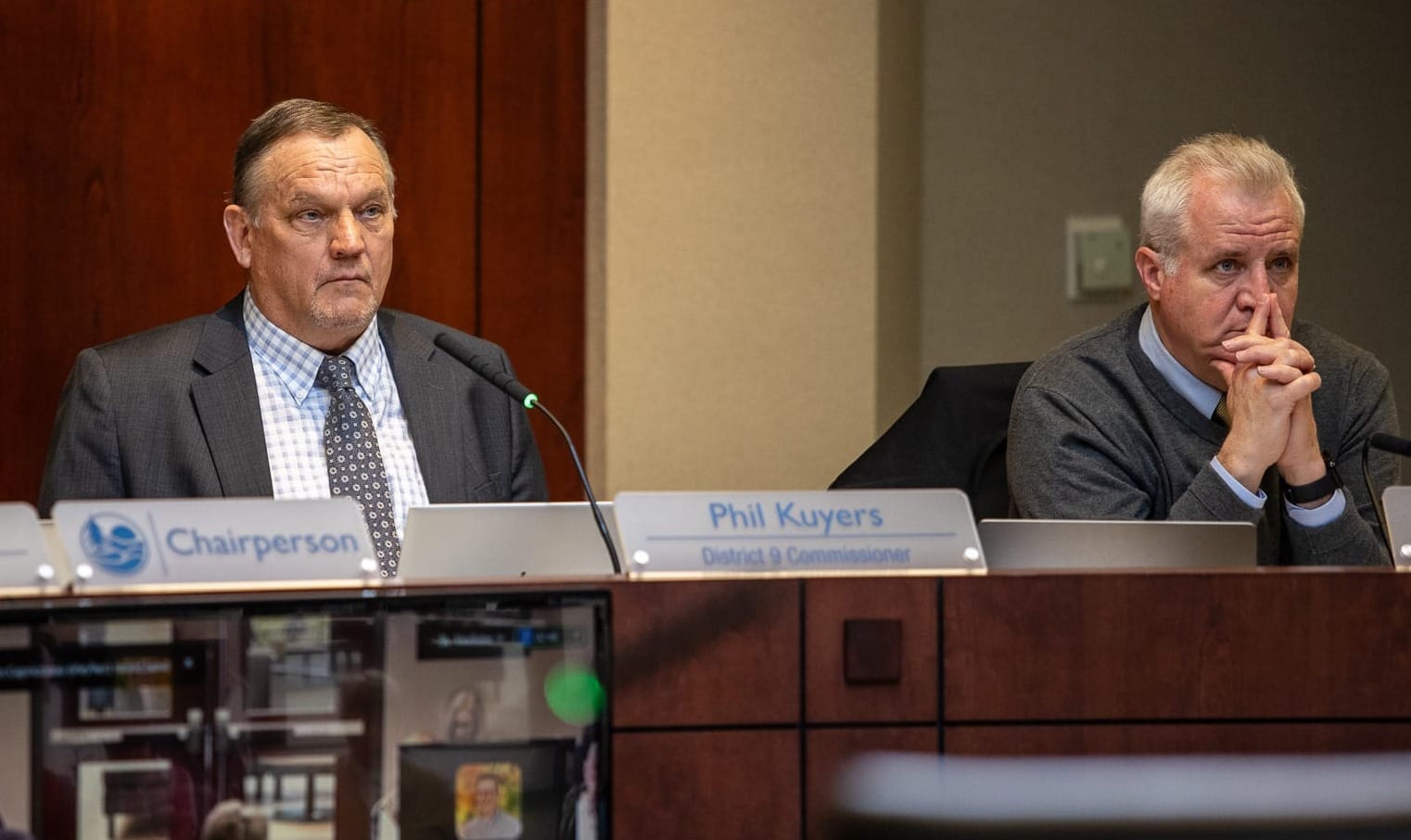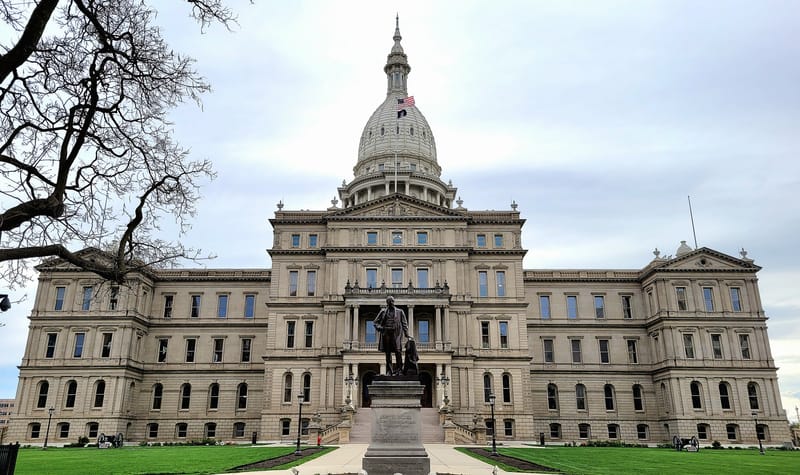Ottawa anti-poverty agency faces dire federal funding cliff, local officials pressed to intervene
The Ottawa County Community Action Agency, a critical lifeline for thousands of the area's most vulnerable residents, is facing a severe financial crisis following federal funding uncertainties, prompting a public plea to local leaders to lobby Washington.
OTTAWA COUNTY — The Ottawa County Community Action Agency, a critical lifeline for thousands of the area's most vulnerable residents, is facing a severe financial crisis following federal funding uncertainties, prompting a public plea to local leaders to lobby Washington.
The instability has forced the Ottawa County Board of Commissioners to publicly weigh the future delivery of anti-poverty services, including the possibility of the county government absorbing programs historically run by the nonprofit.
Agency officials were able to “take a breath and had remained hopeful" after this year's federal funding was released, but the outlook for the next budget cycle remains grim, said Jennifer Brozowski, the agency’s program director.

While President Donald Trump proposed zero funding for the program in his budget, it was anticipated that Congress would fund the Low Income Home Energy Assistance Program for the budget year that began Oct. 1.
Because Congress has not yet passed a full 2026 spending bill, however, states have not had their new allocations released yet.
The organization is currently operating under a continuing resolution, which limits it to last fiscal year's funding levels through the end of January, despite rising costs and increasing community needs.
Critical programs threatened
The agency's operations rely heavily on two core federal funding streams that were targeted for zeroing out in a proposed federal "skinny budget":
The Community Services Block Grant (CSBG): This foundational funding supports a network of agencies nationwide, providing services such as housing, nutrition, utility assistance and employment and education programs. Last year alone, the OCCAA served 842 Ottawa County households through CSBG, and serves nearly 2,000 individuals annually.
The Low Income Home Energy Assistance Program (LIHEAP): Created in 1981, LIHEAP assists families with utility bills and the cost of delivered fuels such as home heating oil. LIHEAP funds are also crucial to maximizing the number of homes the agency can weatherize, making them more energy-efficient.
Brozowski said LIHEAP funds, for example, do more than just pay bills, she said.
"LIHEAP really helps us maximize the number of homes that we can weatherize in a given year," Brozowski said.
The funding is blended with other state programs to support case management.
"Once we have the LIHEAP dollars, we can kind of blend those in and do more case management so we do goal setting with our clients," she said. "Those LIHEAP dollars allow us to bill our time, the staff members' times, to sit down with clients and be able to do some of that case management."
Recently, Brozowski detailed the fallout during public comment at a board of commissioners meeting weeks ago.
"The loss or disruption of CSBG and LIHEAP funding would have an immediate and severe impact on thousands of Ottawa County residents each year," she said.
Brozowski’s concerns were "escalated" by reports that all employees in the federal Office of Community Services, which administers the CSBG, had been let go or permanently reduced.
"Without staff in that office, we have no assurance that CSBG funds will reach the local agencies and communities that depend on them, including OCCAA," she said.
The CSBG, she noted, is a "foundational funding source for the services [OCCAA] provides," serving over 5,000 residents in 2024 with vital services like emergency assistance and home repair.
Residents demand congressional action
The uncertainty led to a passionate plea from community members at that same board meeting for commissioners to leverage their influence on Michigan’s congressional delegation.
- Sheila Dettloff, of Holland Township, implored the board to act on behalf of the county's most vulnerable. "I am asking you to take steps to express to our representatives in the U.S. Senate and House the urgent need to preserve this funding for the 5,000 residents of Ottawa County who use the CAA services," she said. "If you can request intervention at the federal level to keep a coal mine open, surely you can do that much to help ensure that our Ottawa County neighbors stay warm, fed, and with a roof over their heads this winter."
- Nancy Pochran, of Georgetown Township, specifically discussed the impact on the disabled and elderly. "I'm just asking you to make sure that you follow through with your promises to reach out to our congressional and Senate representatives, because it's going to get cold this winter," Pochran said, noting that people in the intellectually and developmentally disabled (IDD) and senior communities "live on margins."
- Brozowski made a direct, formal request to the local leaders: "We respectfully request that you contact our congressional delegation this week and urge the preservation of CSBG and LIHEAP funding. Your action will send a powerful message about the importance and local impact of these programs in Ottawa County."
At the end of the meeting, the county approved a resolution requesting West Michigan congressional leaders to vote to "provide funding for physical shelter, safety, and food security as soon as practicable, in line with the federal administration’s strategic plan." The lone “nay” vote was cast by Commissioner Doug Zylstra.
Local board weighs future of services
The board of commissioners, which serves as the OCCAA's governing board and approves its budget, explored alternative funding paths and considered a study to determine whether the responsibility for addressing urgent social issues should reside with the county government or remain within the nonprofit sector.
However, the local board has already committed some support, agreeing months ago to assist with the OCCAA budget deficit up to an estimated $280,000.
With limited capacity due to flat funding in the face of rising needs, the OCCAA is intensifying its local fundraising efforts.
The annual Walk for Warmth is a two-mile walk that raises money to keep the heat on for financially qualifying families in Ottawa County who have received a utility shut-off notice for gas, electric, water or deliverable fuels like propane. All the proceeds raised stay in Ottawa County.
The next Walk for Warmth is scheduled for 5:30 p.m. Friday, Feb. 20. Details can be found here. Information for the 2026 contest can be found here.
— Heather VanDyke covers northern Ottawa County for the Ottawa News Network. Contact her at hvandyke@ottawanewsnetwork.org.





